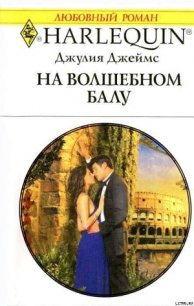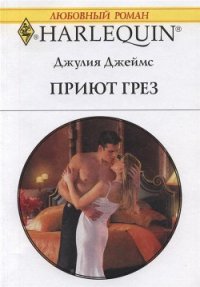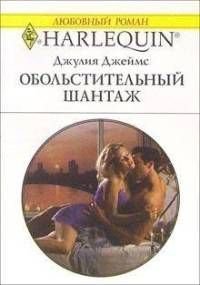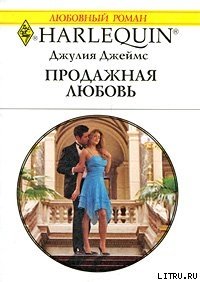Julia Ward Howe - Richards Laura E. (бесплатная регистрация книга TXT) 📗
Thought with its other climbing
To meet and blend on high;
Man's mortal and immortal
Wed for eternity.
When noon's high mass is over,
Muse in the silent aisles;
Wait for the coming vespers
In which new promise smiles.
When from the dome height echoes
An "Ite, missa est,"
Whisper thy last thanksgiving,
Depart, and take thy rest.
J. W. H.
From the time of the Doctor's death till her marriage in 1887, the youngest daughter was her mother's companion and yoke-fellow. In all records of travel, of cheer, of merriment, she can say thankfully: "Et ego in Arcadia vixi."
The spring of 1877 found the elder comrade weary with much lecturing and presiding, the younger somewhat out of health. Change of air and scene was prescribed, and the two sailed for Europe early in May.
Throughout the journeyings which followed, our mother had two objects in view: to see her own kind of people, the seekers, the students, the reformers, and their works; and to give Maud the most vivid first impression of all that would be interesting and valuable to her. These objects were not always easy to combine.
After a few days at Chester (where she laments the "restoration" of the fine old oak of the cathedral, "now shining like new, after a boiling in potash") and a glimpse of Hawarden and Warwick, they proceeded to London and took lodgings in Bloomsbury (a quarter of high fashion when she first knew London, now given over to lodgings). Once settled, she lost no time in establishing relations with friends old and new. The Unitarian Association was holding its annual conference; one of the first entries in the Journal tells of her attending the Unitarian breakfast where she spoke about "the poor children and the Sunday schools."
Among her earliest visitors was Charles Stewart Parnell, of whom she says:—
"Mrs. Delia Stewart Parnell, whom I had known in America, had given me a letter of introduction to her son, Charles, who was already conspicuous as an advocate of Home Rule for Ireland. He called upon me and appointed a day when I should go with him to the House of Commons. He came in his brougham and saw me safely deposited in the ladies' gallery. He was then at the outset of his stormy career, and his sister Fanny told me that he had in Parliament but one supporter of his views, 'a man named Biggar.' He certainly had admirers elsewhere, for I remember having met a disciple of his, O'Connor by name, at a 'rout' given by Mrs. Justin McCarthy. I asked this lady if her husband agreed with Mr. Parnell. She replied with warmth, 'Of course; we are all Home Rulers here.'"
"May 26. To Floral Hall concert, where heard Patti—and many others—a good concert. In the evening to Lord Houghton's, where made acquaintance of Augustus Hare, author of 'Memorials of a Quiet Life,' etc., with Mrs. Proctor, Mrs. Singleton [Violet Fane], Dr. and Mrs. Schliemann, and others, among them Edmund Yates. Lord Houghton was most polite and attentive. Robert Browning was there."
Whistler was of the party that evening. His hair was then quite black, and the curious white forelock which he wore combed high like a feather, together with his striking dress, made him one of the most conspicuous figures in the London of that day. Henry Irving came in late: "A rather awkward man, whose performance of 'Hamlet' was much talked of at that time." She met the Schliemanns often, and heard Mrs. Schliemann speak before the Royal Geographical Society, where she made a plea for the modern pronunciation of Greek. In order to help her husband in his work, Mrs. Schliemann told her, she had committed to memory long passages from Homer which proved of great use to him in his researches at Mycen? and Tiryns.
"May 27.... Met Mr. and Mrs. Wood—he has excavated the ruins at Ephesus, and has found the site of the Temple of Diana. His wife has helped him in his work, and having some practical experience in the use of remedies, she gave much relief to the sick men and women of the country."
"June 2. Westminster Abbey at 2 P.M. ... I enjoyed the service, Mendelssohn's 'Hymn of Praise,' Dean Stanley's sermon, and so on, very unusually. Edward Twisleton seemed to come back to me, and so did dear Chev, and a spiritual host of blessed ones who have passed within the veil...."
"June 14. Breakfast with Mr. Gladstone. Grosvenor Gallery with the Seeleys. Prayer meeting at Lady Gainsborough's.
"We were a little early, for Mrs. Gladstone complained that the flowers ordered from her country seat had but just arrived. A daughter of the house proceeded to arrange them. Breakfast was served at two round tables, exactly alike.
"I was glad to find myself seated between the great man and the Greek minister, John Gennadius. The talk ran a good deal upon Hellenics, and I spoke of the influence of the Greek in the formation of the Italian language, to which Mr. Gladstone did not agree. I know that scholars differ on the point, but I still retain the opinion I expressed. I ventured a timid remark regarding the number of Greek derivatives used in our common English speech. Mr. Gladstone said very abruptly, 'How? What? English words derived from Greek?' and almost
'Frightened Miss Muffet away.'
"He is said to be habitually disputatious, and I thought that this must certainly be the case; for he surely knew better than most people how largely and familiarly we incorporate the words of Plato, Aristotle, and Xenophon in our everyday talk."[78]
Mr. Gladstone was still playing the first role on the stage of London life. Our mother notes hearing him open the discussion that followed Mrs. Schliemann's address before the Royal Geographical Society. Lord Rosebery, who was at that time Mr. Gladstone's private secretary, talked much of his chief, for whom he expressed impassioned devotion. Rosebery, though he must have been a man past thirty at the time, looked a mere boy. His affection for "Uncle Sam" Ward was as loyal as that for his chief, and it was on his account that he paid our mother some attention when she was in London.
She always remembered this visit as one of the most interesting of the many she made to the "province in brick." She was driving three horses abreast,—her own life, Maud's life, the life of London. She often spoke of the great interest of seeing so many different circles of London society; likening it to a layer cake, which a fortunate stranger is able to cut through, enjoying a little of each. Her modest Bloomsbury lodgings were often crowded by the leaders of the world of letters, philanthropy, and art, and some even of the world of fashion. The little lodging-house "slavey" was often awed by the titles on the cards she invariably presented between a work-worn thumb and finger. It is curious to contrast the brief record of these days with that of the Peace Crusade.




